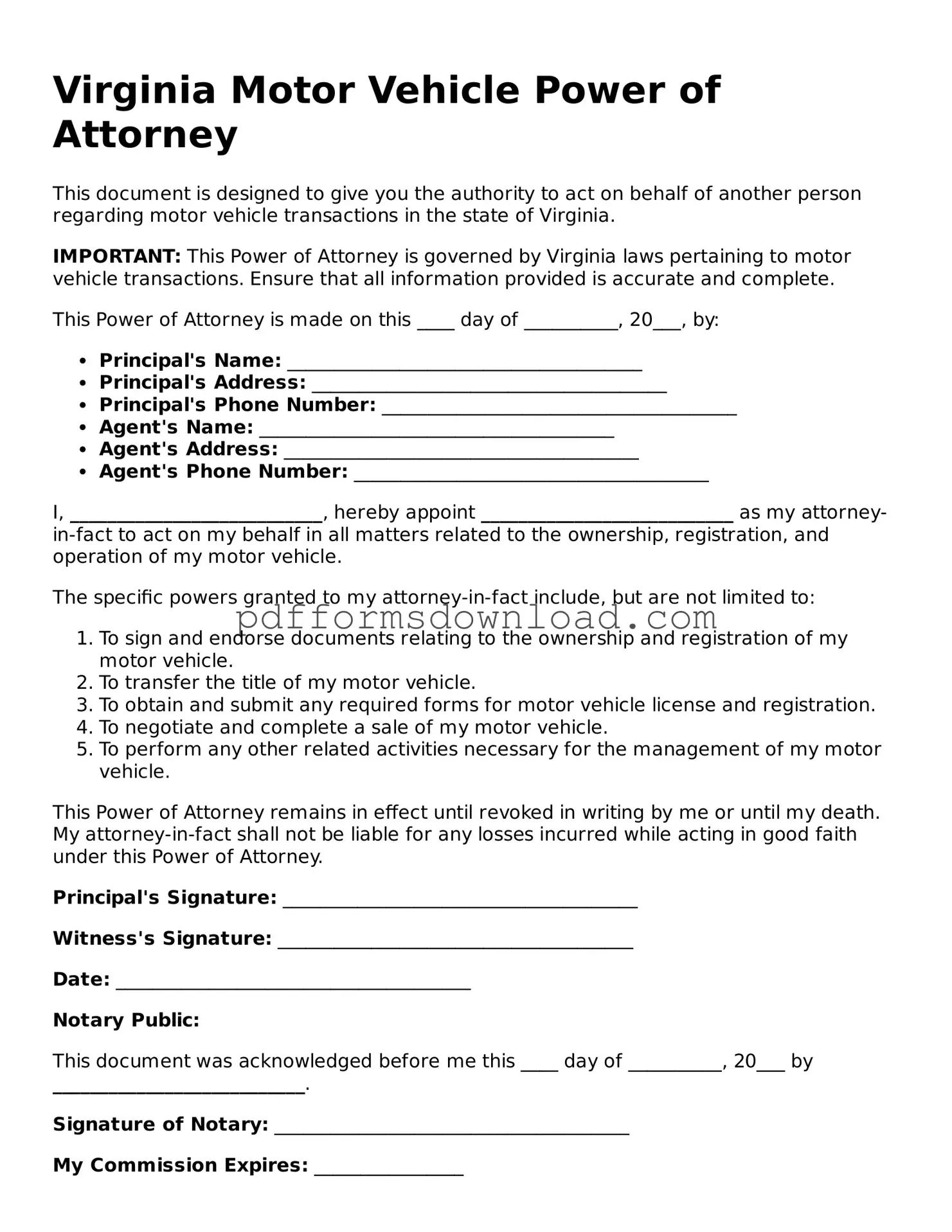Printable Virginia Motor Vehicle Power of Attorney Form
The Virginia Motor Vehicle Power of Attorney form is a legal document that allows one person to grant another the authority to handle specific motor vehicle transactions on their behalf. This can include tasks such as registering a vehicle, transferring title, or obtaining license plates. Understanding how to properly utilize this form is essential for anyone needing to delegate vehicle-related responsibilities.
Ready to take the next step? Fill out the form by clicking the button below!
Make This Document Now

Printable Virginia Motor Vehicle Power of Attorney Form
Make This Document Now

Make This Document Now
or
Free PDF File
Your form is almost ready
Complete your Motor Vehicle Power of Attorney online — edit, save, and download easily.